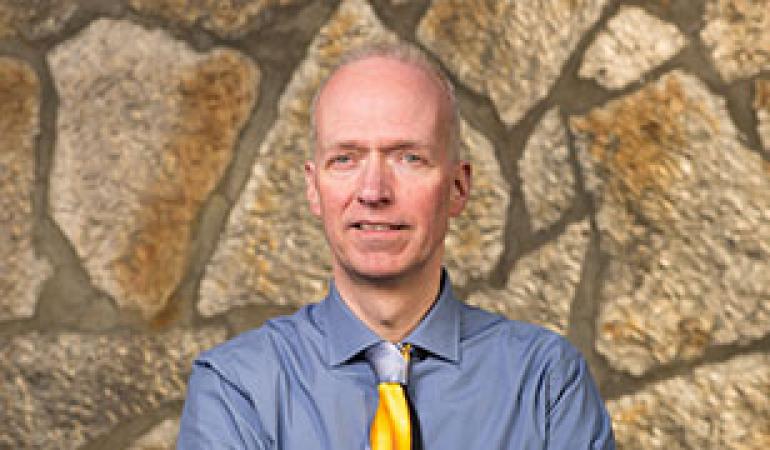
TIME heeft professor doctor Guus Velders van het RIVM uitgekozen tot één van de honderd invloedrijkste personen in de wereld. Velders krijgt de erkenning omdat hij de wetenschappelijke basis legde onder het wereldwijde klimaatakkoord dat in oktober 2016 werd gesloten in Kigali, Rwanda.
De afgelopen jaren toonde Velders samen met Amerikaanse onderzoekers de sterke klimaatwerking van fluorkoolwaterstoffen (HFK (fluorkoolwaterstoffen)’s) aan. Deze stoffen worden gebruikt in koelkasten, airconditioners en isolatiematerialen. In Kigali spraken wereldleiders af om het gebruik van deze broeikasgassen de komende decennia sterk terug te dringen. Door dit preventieve akkoord blijft de bijdrage van HFK’s aan klimaatverandering beperkt tot minder dan 0,1 graden Celsius in 2100, in vergelijking met maximaal 0,5 graden Celsius zonder het akkoord.
Vanwege deze prestatie selecteerde het toonaangevende wetenschappelijke blad Nature Velders eerder al als één van de tien meest invloedrijke wetenschappers in 2016. Hij ontving uit handen van directeur-generaal André van der Zande de Jennerpenning voor het verrichten van baanbrekend wetenschappelijk onderzoek. Sinds april is Velders hoogleraar Luchtkwaliteit en klimaat interacties bij de Universiteit Utrecht.
Basis voor klimaatbeleid
De komende jaren bouwt Guus Velders met collega’s verder aan de wetenschappelijke basis onder klimaatbeleid. Hij wil de met de gegevens en modellen van het RIVM en de Universiteit Utrecht het klimaatakkoord van Parijs gaan monitoren. Hiermee kan het RIVM lokale overheden en bedrijven helpen om de (inter)nationale klimaatdoelen te halen.
Ook onderzoekt Velders de invloed van klimaatverandering en klimaatmaatregelen op luchtkwaliteit en omgekeerd: hij onderzoekt in hoeverre deeltjes in de lucht bijdragen aan zowel luchtverontreiniging als aan klimaatverandering. Inzichten uit dit onderzoek zullen zowel bijdragen aan gezondere lucht als aan het bereiken van klimaatdoelen.
Guus Velders in TIME 100
(A large office building. A man walks inside. Voice-over:)
TRANQUIL MUSIC
VOICE-OVER: Professor Guus Velders
of the Dutch National Institute for Public Health and the Environment,
better known as RIVM, is on Time's list of the 100 most influential people on Earth.
Velders showed that hydrofluorocarbons are major contributors to climate change.
These compounds are used in refrigerators, air conditioners and insulation materials.
PROFESSOR VELDERS: I'm greatly honoured to be put on the Time 100 list.
I also see this as a recognition for the importance of climate change.
But much more needs to be done to protect future generations
from the adverse effects of climate change.
VOICE-OVER: Based on this research,
world leaders entered into an agreement in 2016,
with the aim of greatly reducing the emissions of hydrofluorocarbons.
This will limit global warming by a maximum of 0.5°C by the year 2100.
(A graph shows the evolution.)
Velders was already chosen
as one of the most influential scientists by Nature magazine in 2016.
This year, RIVM Director General André van der Zande
awarded him the RIVM Jenner Medal for his breakthrough scientific research.
And Velders has just been appointed
Professor by Special Appointment at Utrecht University.
In the coming years, Guus Velders will be working together with his colleagues
to further strengthen the scientific basis behind climate policy.
He will ensure that the data and computing infrastructure at RIVM
is suitable for monitoring the Paris climate agreement.
To protect the climate, all the countries of the United Nations
reached an agreement in 2015 in Paris.
To meet the goals of the agreement,
national governments, companies and cities have to take action.
And RIVM wants to assist them by giving information, tools and knowledge
on how they can reach their goals.
VOICE-OVER: Velders is also carrying out research into the impact of climate change
and climate measures on air quality, and vice versa.
VELDERS: One of the important causes of climate change
is small particles in the air.
Those particles are also bad for your health, through air pollution.
We want to know which particles are bad for your health and bad for climate change,
and especially which measures we can take
to reduce the effects of climate change and of air pollution.
VOICE-OVER: RIVM is very proud of the international recognition
of Professor Velders' exceptional achievements
and of his contribution to a more sustainable world.
(The Dutch coat of arms, next to: National Institute for Public Health and the Environment. Ministry of Health, Welfare and Sport. The screen turns red and white. On-screen text: More information? www.rivm.nl/hfc. www.time.com/time100. A production of RIVM. Copyright 2017. Committed to health and sustainability.)
THE TRANQUIL MUSIC FADES AWAY